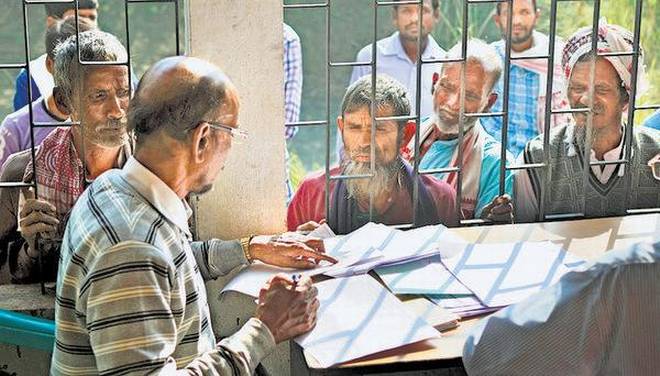Colombo, September 2 (newsin.asia): The final list of National Register of Citizens (NRC) in the state of Assam was published on 31 August 2019 in India. Since then, there have been commentaries in sections of the foreign media about aspects of the final NRC which are incorrect, the Indian High Commission here said in a press release on Monday.
National Register of Citizens in Assam aims to give effect to the Assam Accord signed in 1985 between the Government of India, State Government of Assam, the All Assam Students Union (AASU) and All Assam Gan Sangram Parishad (AAGSP). Supreme Court of India had mandated the government to deliver on the commitment in 2013. This led to the process of updating the National Register of Citizens in Assam in 2015.
NRC is a fair process based on ‘application’ method which means that any person in Assam could have sought to be included in the list on the basis of having documentation to prove lineage from an entitled person, i.e. a person who was a resident of Assam as on March 24, 1971.
It is a “non-discriminatory process”, which leaves no room for bias and injustice. As can be seen from the application form for data entry in NRC, there was no column in the application asking for the religion of the applicant.
Exclusion from the NRC will have no implication on the rights of an individual resident in Assam. For those who are not in the final list will not be detained and will continue to enjoy all the rights as before till they have exhausted all the remedies available under the law. It does not make the excluded person “Stateless”. It also does not make him or her a “Foreigner”, within the legal meaning of the term.
Anyone excluded from the list at this stage has a right to file an appeal within 120 days of receiving a notification of exclusion to the designated Tribunal. All appeals and excluded cases will be examined by judicial process. This judicial process will commence only after the appellate period is over. Thereafter, anyone still aggrieved by any decision of being excluded will have the right to approach the High Court of Assam and then the Supreme Court.
The government of India will even assist in providing directions on how to deal with such appeals. Through the District Legal Service Authorities, the government will extend legal aid to the needy. The State of Assam has assured provision of free legal assistance to any person excluded from the list and who is unable to afford such legal assistance. This is to enable people, especially the disadvantaged sections, to have access to the best possible legal assistance.
To expedite the process of receiving applications for inclusion, the State Government of Assam is further adding 200 tribunals to the existing 100 tribunals to hear the appeals. A further 200 more tribunals will be set up by the State of Assam by December 2019. These Tribunals will be set up at Block level for the convenience of appellants.
Updating of the National Register of Citizens is a statutory, transparent, legal process mandated by the Supreme Court of India. India, as the world’s largest democracy, has firmly enshrined ‘equal rights for all’ and ‘respect for the rule of law’ in its Constitution. An independent judiciary and fully autonomous state institutions, working for the defence of human rights, are an integral part of India’s political fabric and traditions. Any decision that is taken during the process of implementation of the NRC, will be within the four corners of the Indian law and consistent with India’s democratic traditions.





























































